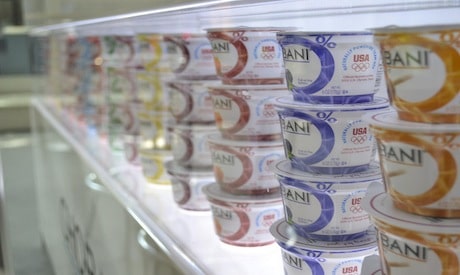
The USDA is launching a pilot program in Arizona, Idaho, New York and Tennessee bringing Greek yogurt products into schools for the 2013-2014 school year, reports CNN.
The pilot program will test the cost-effectiveness of adding Greek yogurts to school meal programs. If successful, it will be rolled out into the rest of the country in an effort to further improve the quality of school foods.
Read more about school meals
“It is a win-win for the state, exposing our students to a nutritional product and expanding the marketplace for Greek yogurt producers and suppliers in New York State,” said New York governor Andrew Cuomo in a press release. New York, which is one of the states in the pilot program was the nation's largest producer of yogurt in 2012.
But the situation is a bit more complicated.
Greek yogurt claims to offer higher nutritional benefits than traditional yogurt options by containing less sugar, fewer carbohydrates, sodium and lactose. It's also higher in protein. But with the popularity of the category-now a $2 billion industry-comes many competing brands, many of which contain excessive amounts of Scary Seven ingredients including sugar, artificial colors and preservatives– in essence, negating some of the benefits of a truly natural Greek yogurt.
Read more about Greek yogurt ingredients
Then, there is the issue of production. Acidic whey is produced in massive volume during Greek yogurt production. Unlike sweet whey, which comes from cheese production, acid whey is not all that edible. Some of it is routed back to farmers where it's used as fertilizer and to augment animal feed (in small doses). It even has applications in alternative energy production. But it's highly acidic-and therefore toxic. If it winds up in waterways, which many experts fear is inevitable, the acidity can destroy all aquatic life in rather large areas.
And at $2 billion in sales, we're talking a lot of whey. CNN reports that Chobani, a popular Greek yogurt producer, uses three pounds of milk to produce one pound of its yogurt. While the company claims it returns the whey to farmers, food and agriculture writer and history professor at Texas State University, James McWilliams told CNN, “Anything is potentially toxic. But the acid whey that's a byproduct of the Greek yogurt industry is, at the level at which it's produced and disposed, toxic enough to rob aquatic ecosystems of enough oxygen to harm fish and other species.”
Boosting the nutritional quality of our children's school meals is highly important. But what remains to be seen is just how pure the Greek yogurt additions will be to school meals, or if it'll just be more sugar and artificial ingredients in disguise. As well, ensuring that our nation's environment and water systems are healthy is an equally important consideration for our children's future.
Image: Provisions




